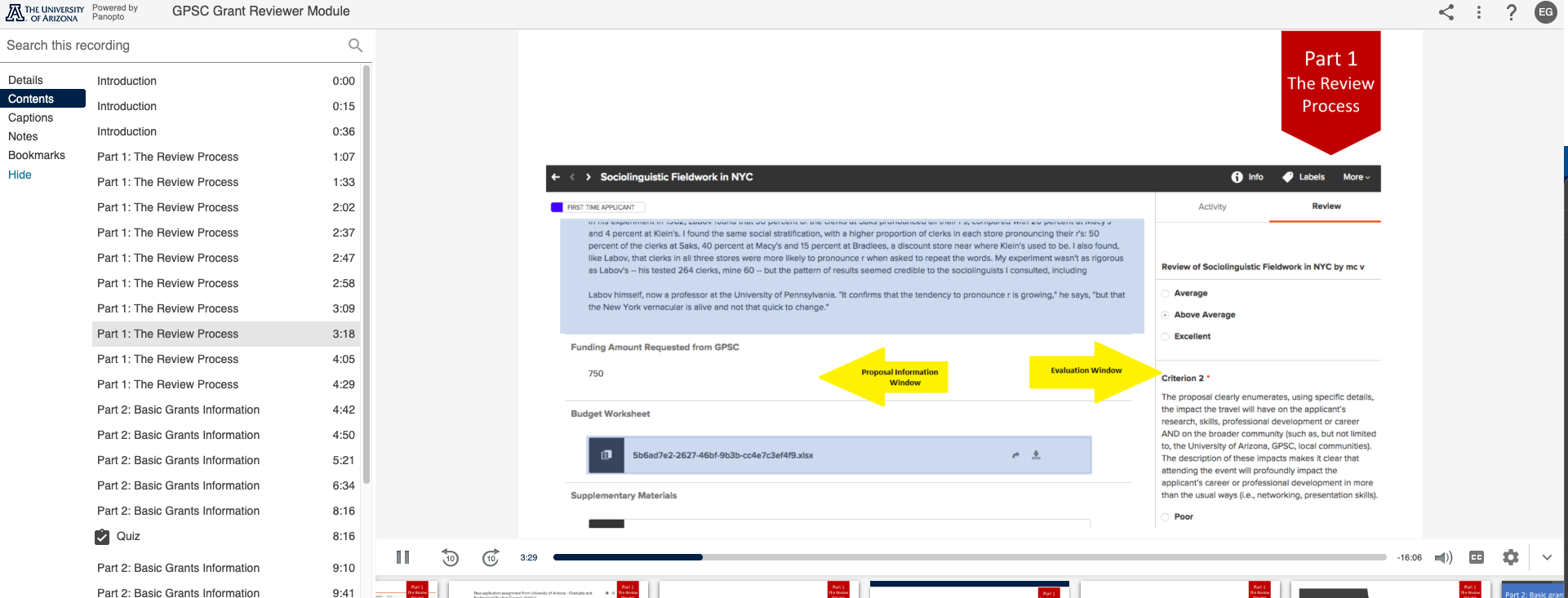My Experience as a GPSC Grants Reviewer (And What It Taught Me)
GPSC Grants are one of my most recommended resources on campus for graduate students. I've had the privilege of being part of GPSC in an employment capacity and as an awardee for their travel grant. The latter supported my attendance at NAACL 2025. I'd wanted to volunteer as a reviewer for the longest time to give back to this service, and I finally received the opportunity this October (2025).
Training as a Reviewer
The grants team has a very detailed and thorough training module, and I especially appreciated the sample exercise they included. If the training video is available to students, I highly recommend watching it and reading the rubric before you apply. I especially appreciated the training's heads-up about potential cognitive and emotional biases, since we reviewers are graduate students ourselves. It's a good reminder to stay objective and focus on the rubric.

My Recommendations After Reviewing
I was assigned four reviews this cycle, and I took on 3 emergency reviews as well. All grants I reviewed were travel grants, which isn't surprising given how competitive they are. Outside the obvious advice, here are some of my specific takeaways and recommendations after reviewing.
- Align your proposal directly to the rubric. Details, details, details—the easier it is to see that you match the criteria, the higher your chances of receiving the grant. Force yourself to map your narrative to the rubric items and use the provided examples as inspiration.
- Organization matters. Remember that long paragraphs are hard to read. Organize your information clearly for flow and readability. Remove repetitive or unnecessary background context and focus on the main substance of your proposal.
- Space allocation should match the rubric, not your personal priorities. While certain aspects of your research may be extremely important to you personally, distribute space based on what the rubric weighs most heavily. Mention what matters to you, but prioritize what matters to the grant.
- Specificity is key. Generic information and filler language work against you. If you've already attended the conference, get as specific as possible: name the people you networked with, describe how connections have impacted your work (even in small ways), mention specific workshops or talks you attended. Avoid technical jargon that reviewers may not understand and take up valuable space without adding value for the review.
- Honesty is critical. Anything that appears as an attempt to mislead the reviewer will sour the entire review, despite any reviewer's best attempts to remain objective.
- Budget justification needs to be proactive and specific. Demonstrate multiple attempts to secure outside funding beyond easily accessible sources. If you're choosing more expensive options, justify the decision with specifics for example, the conference ends rather late and there is no public transportation at that hour. Demonstrate cost-consciousness in your choices, and include all relevant expenses you are paying out of pocket to strengthen your case for financial need.
Closing notes
Overall, this was a rewarding experience. One unexpected joy of reading the travel grant proposals was learning about different people's research and the recognition their work is receiving. Filled me with a quiet joy :)